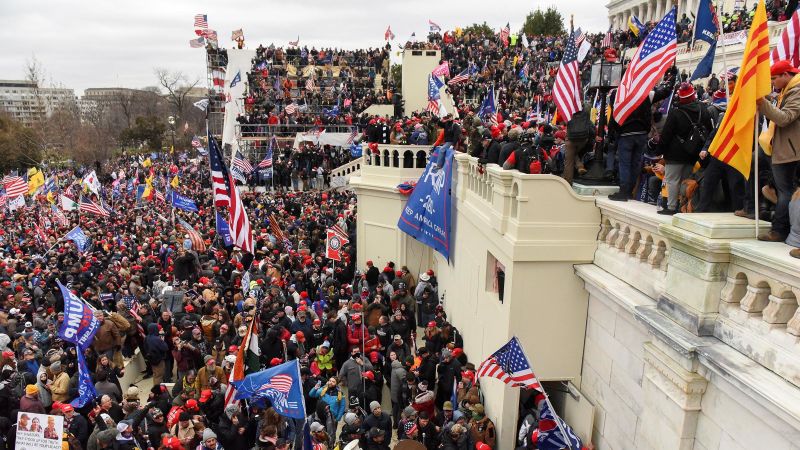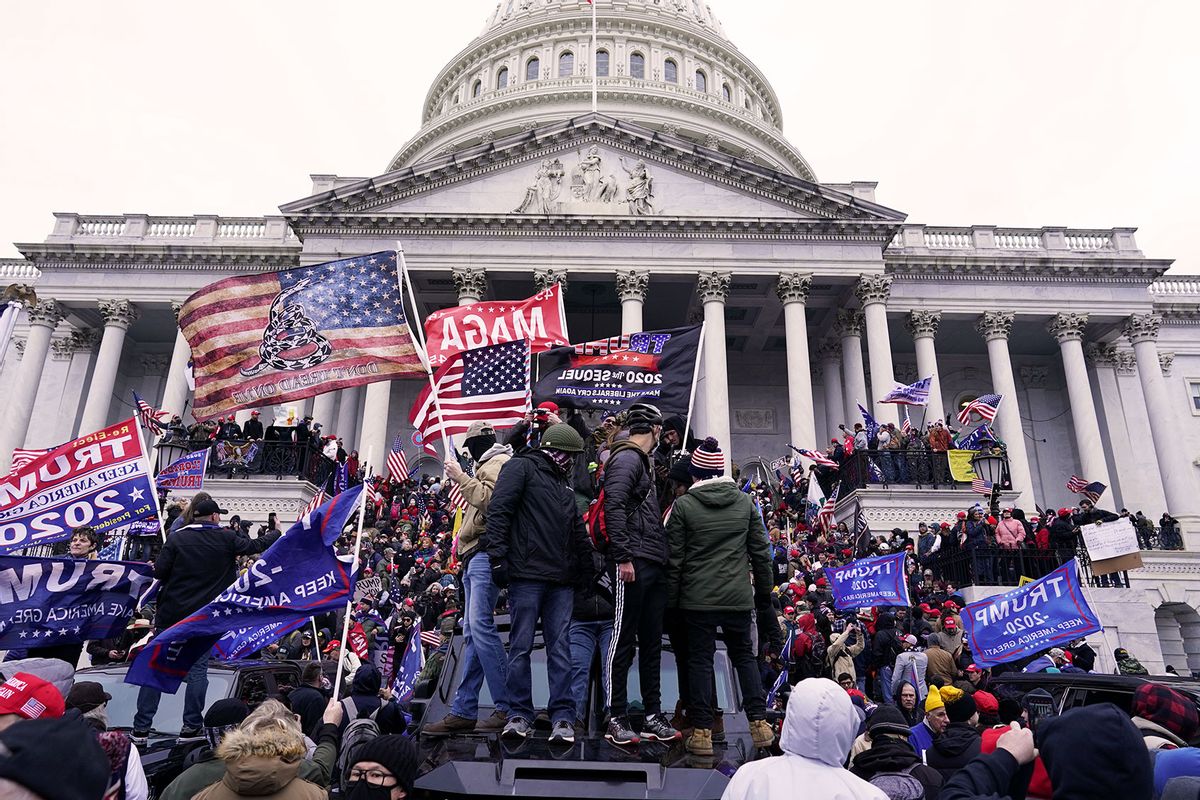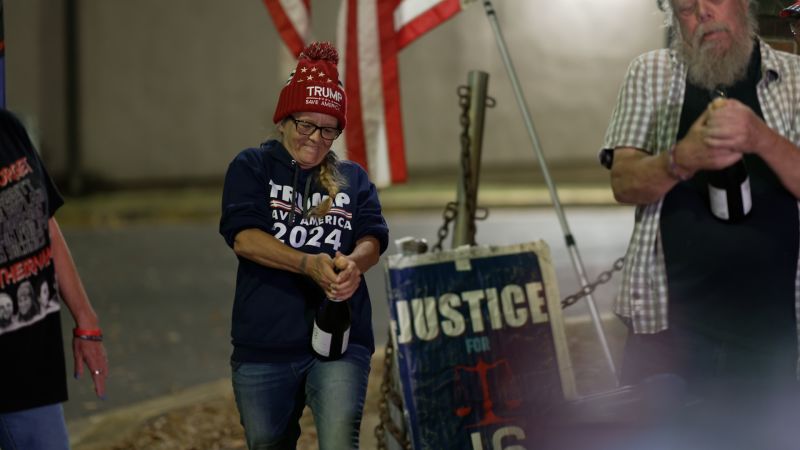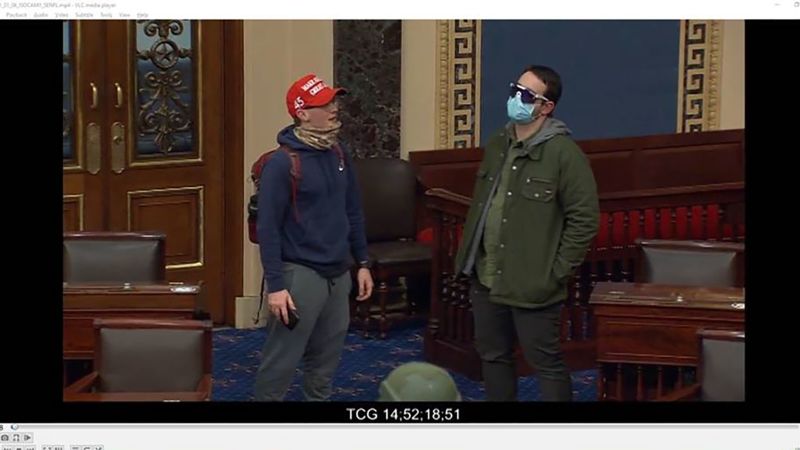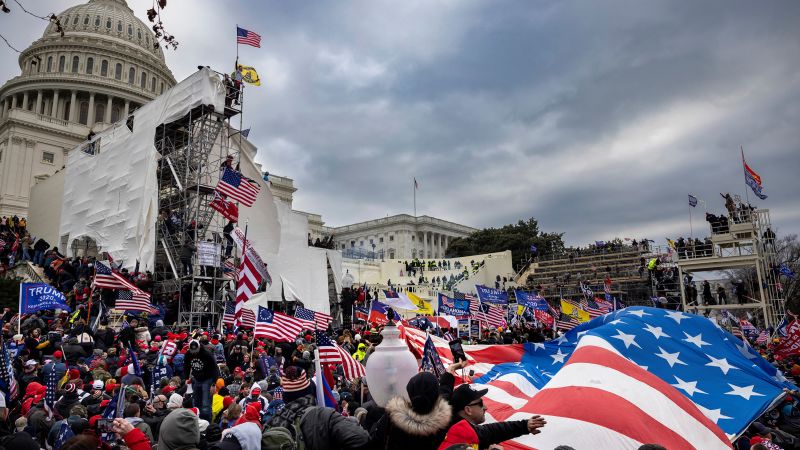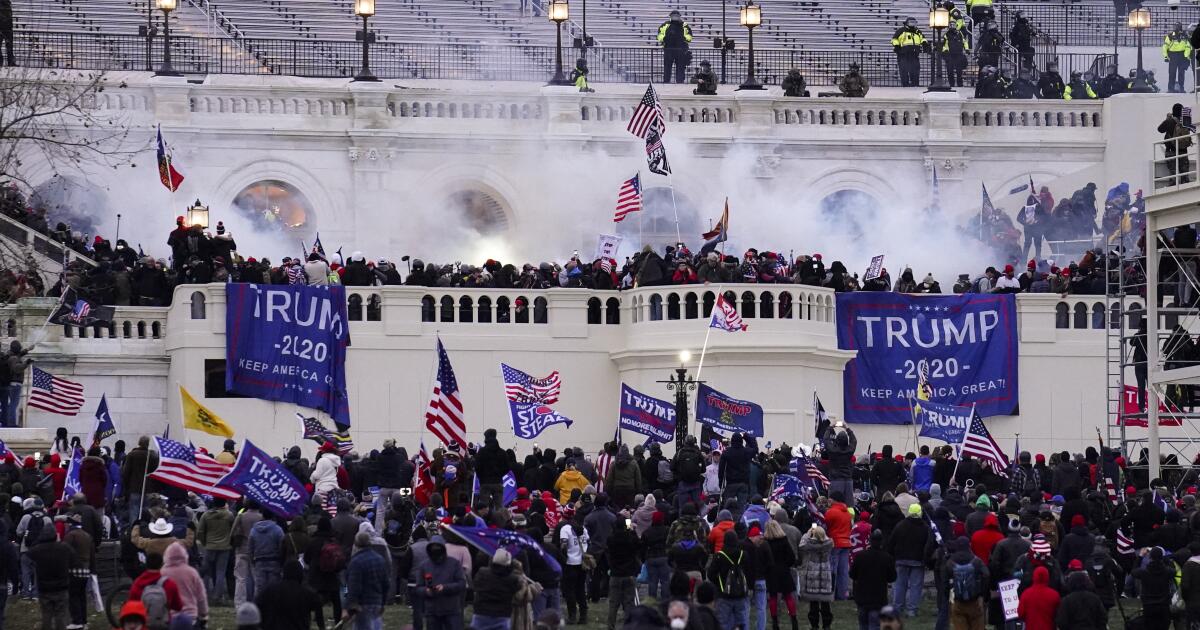
5 takeaways from the Capitol riot criminal cases, one year later
NPR5 takeaways from the Capitol riot criminal cases, one year later Enlarge this image toggle caption Bloomberg via Getty Images Bloomberg via Getty Images By now, the date is lodged in the collective national memory: Jan. 6, 2021, when hundreds of Trump supporters stormed the U.S. Capitol in an attempt to disrupt the legitimate transfer of power from the former president to whom they had pledged loyalty to current President Biden. In the aftermath of Jan. 6, Defense Department spokesperson John Kirby called the riot "a wake-up call" and the prevalence of extremist views among current and former service members "not an insignificant problem." "Concerns about conditions in the jail received little attention until they were raised, of course, by mostly white defendants accused of perpetrating the January 6 insurrection.. That's not because people weren't complaining," Racine said at a hearing of the D.C. Council's Judiciary and Public Safety Committee after the Marshals Service report. Because of the controversial principle known as the "trial penalty," people who take their cases to trial and lose face much stiffer sentences than those who plead guilty.
History of this topic
Hundreds of convictions, but a major mystery is still unsolved 3 years after the Jan. 6 Capitol riot
Associated PressCourt tosses Jan. 6 sentence in ruling that could impact other low-level Capitol riot cases
Associated Press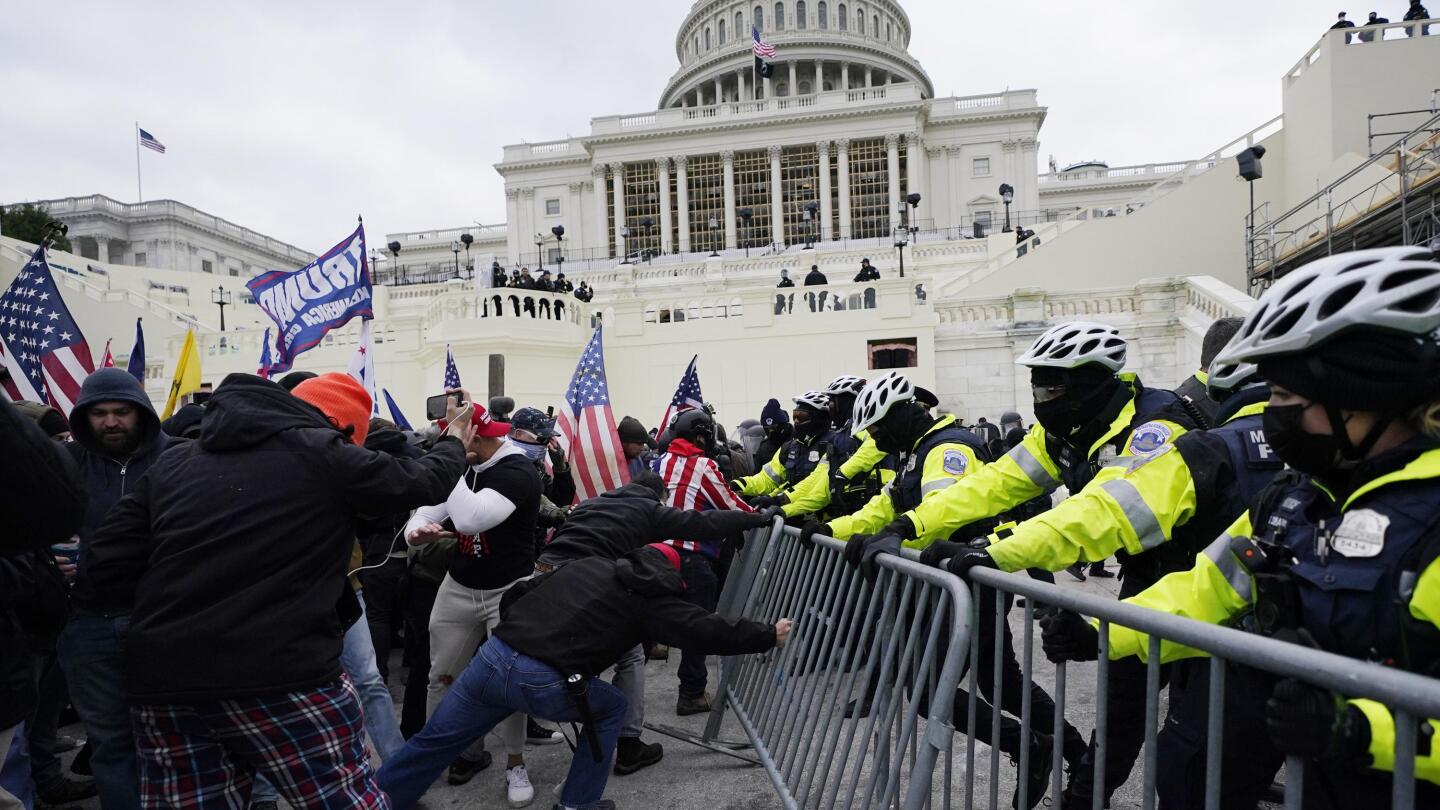
EXPLAINER: Capitol riot investigation growing 2 years later
Associated Press
Verdicts for three Capitol rioters could change the course of other Jan. 6 trials
Raw Story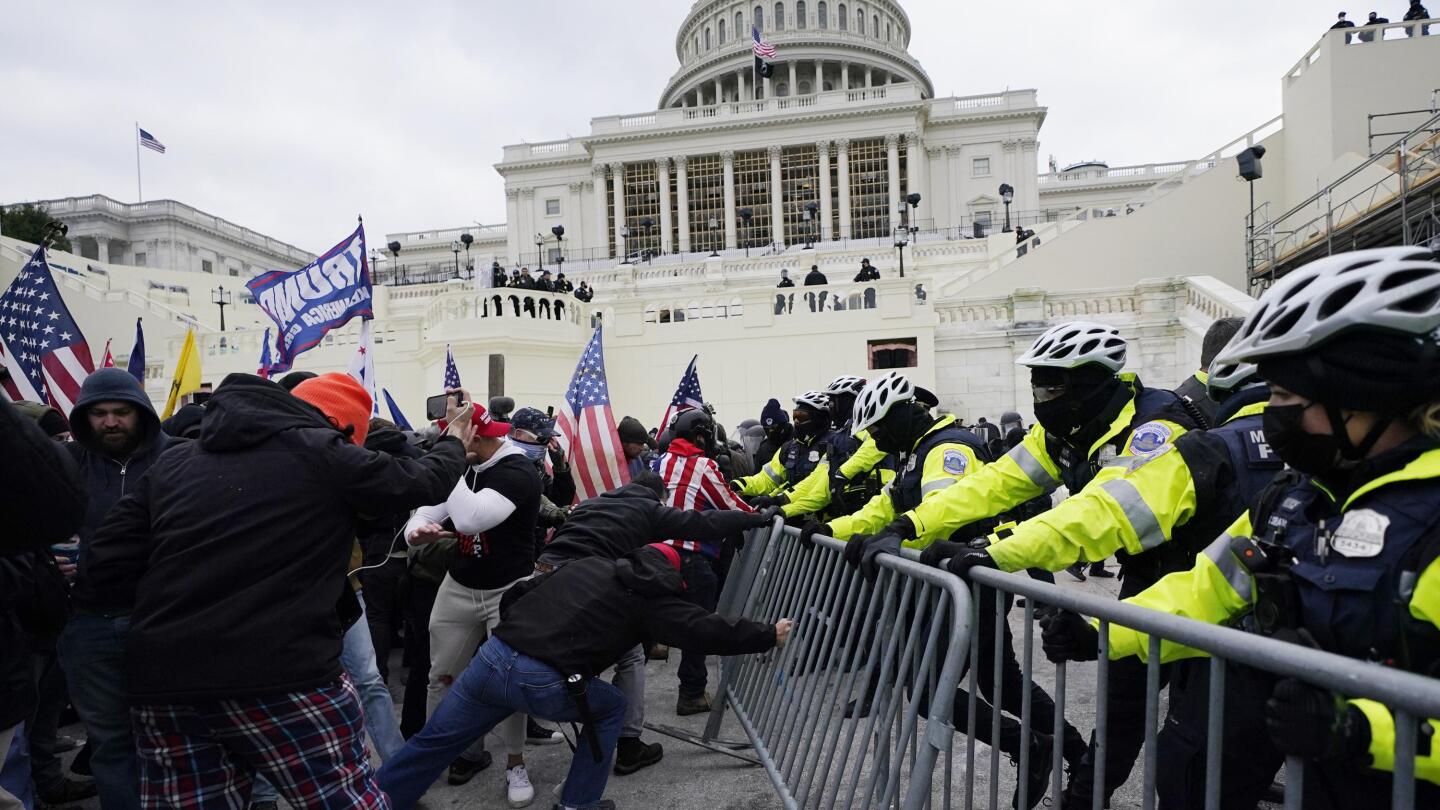
Some Capitol rioters try to profit from their Jan. 6 crimes
Associated Press
Some Capitol rioters try to make money from their Jan. 6 crimes
LA Times)
Despite bias claims, 6 Jan US Capitol riot trials to take place in Washington DC
Firstpost
Judge issues the first outright acquittal of a defendant charged over the Jan. 6 riot
NPR
First US Capitol riot trial: Defendant convicted on all counts
Al Jazeera
Witness: Jan. 6 rioter wanted to remove ‘corrupt’ lawmakers
Associated Press
‘Huge impact’: First January 6 US Capitol riot trial begins
Al Jazeera
Capitol rioter gets prison as feds reach 100 sentencings
Associated Press
US Capitol rioter gets 44 months in prison for assaulting officer
Al Jazeera
Toughest sentence yet for any Capitol rioter: over 5 years
Associated Press
Capitol rioter breaks down in tears as he pleads guilty to felony assault on law enforcement
Raw Story
Capitol riot investigation: 275 cases are open, US prosecutors say
CNN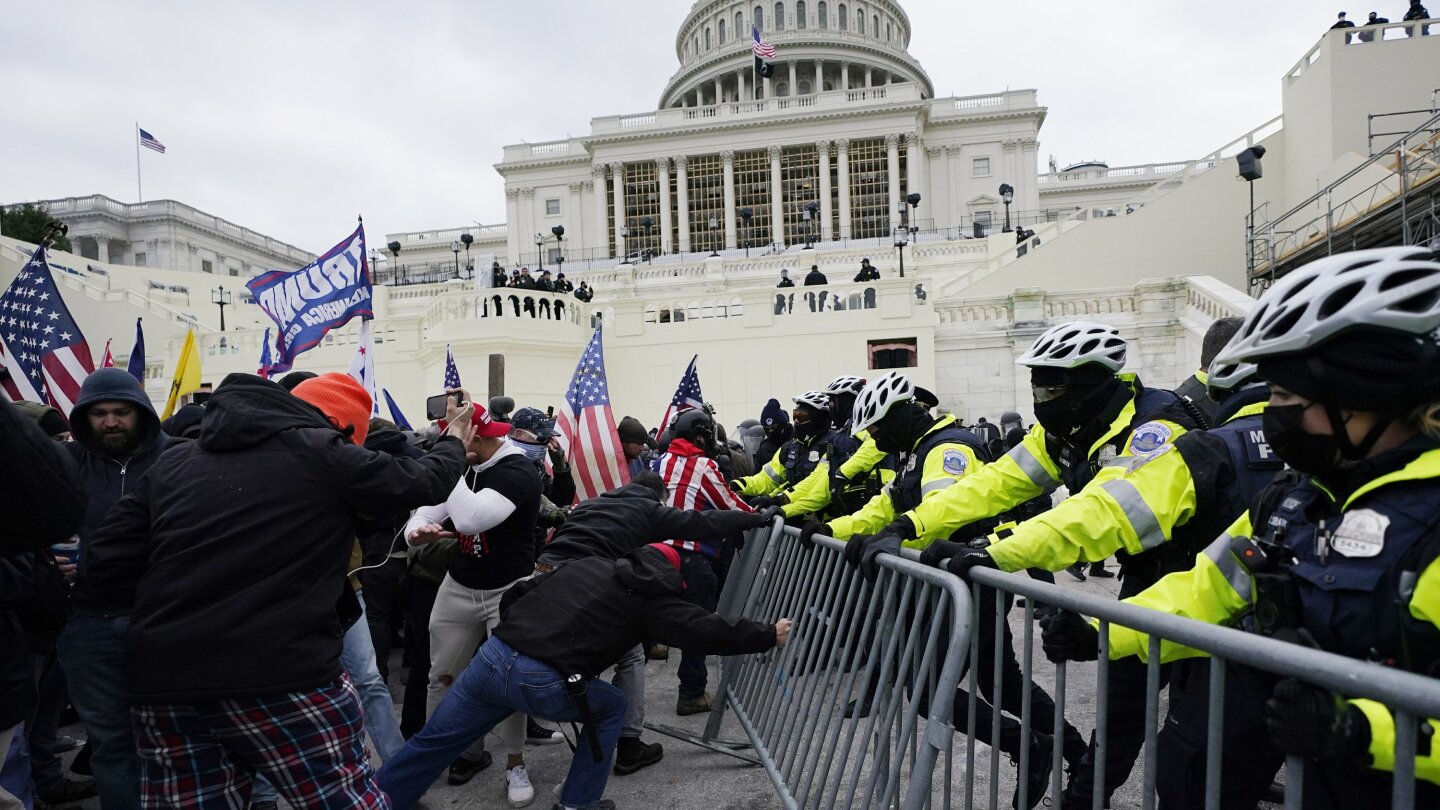
EXPLAINER: Who has been charged in the deadly Capitol riot?
Associated PressDiscover Related
